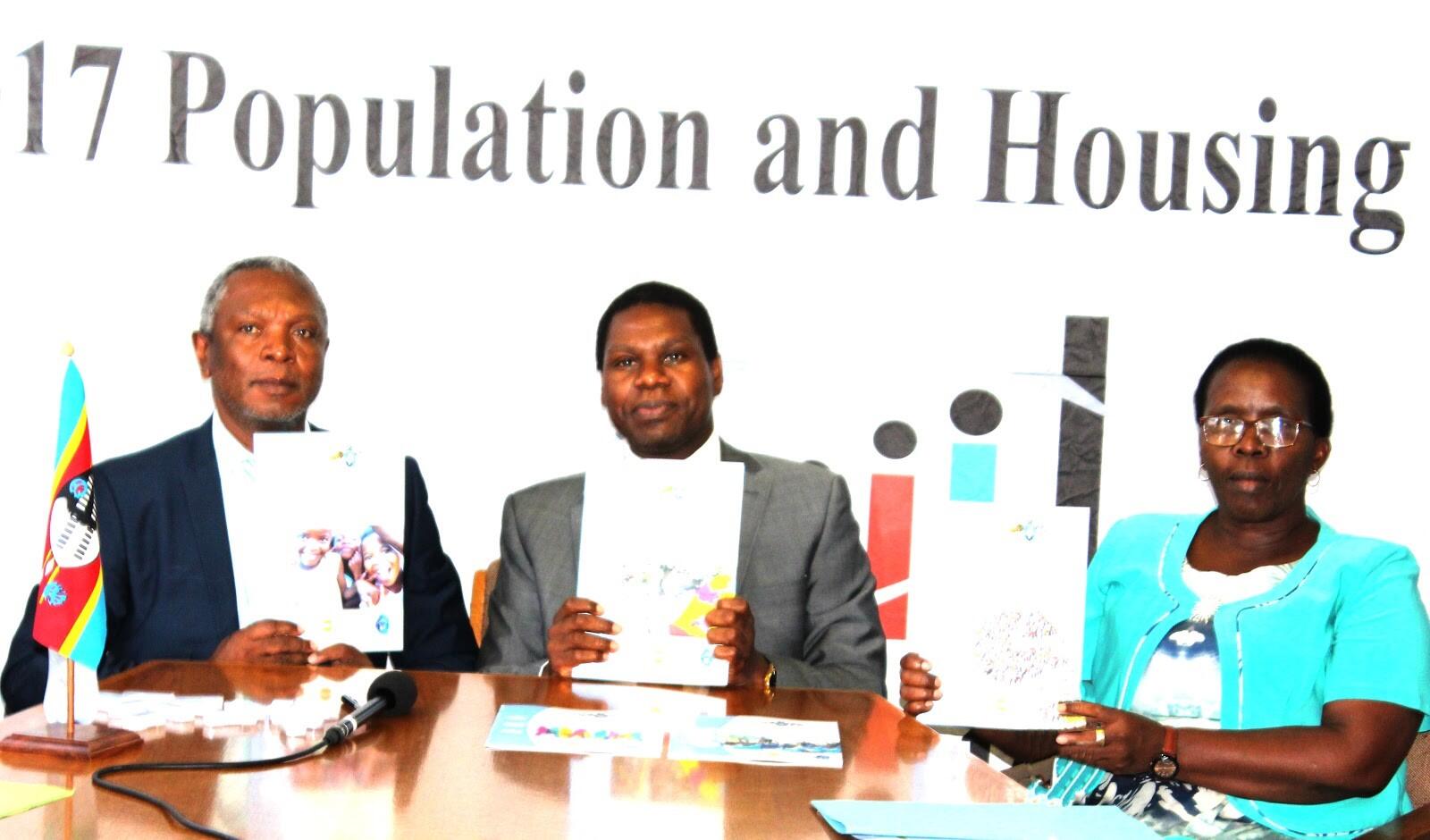On Friday the 20th of March 2020, the Government of the Kingdom of Eswatini in collaboration with UNFPA; the United Nations sexual reproductive health agency launched the 5-volumed 2017 Eswatini Population and Housing Census report in a press conference in Mbabane (Ministry of Economic Planning and Development offices).
The Ministry's Principal Secretary Bheki Bhembe, speaking on behalf of the Honourable Minister Dr Thambo Gina, disclosed the total population to be just at 1.1 million. Bhembe said,
"Total population stands at 1 093 238 with 531 11 being male and 562 127 being females. A slight decline in population growth was observed. We moved from 0.9% in the period of 1997 - 2007 to 0.7% in the period 2007 - 2017."
In the current COVID-19 state of global emergency declared by the World Health Organisation, and subsequently by the government of Eswatini, up to date population data is a key tool in the planning processes. UNFPA Acting Head of Office Margaret Thwala-Tembe praised the government's efforts, through the Central Statistical Office, for such an achievement. The Acting Head of Office pointed out,
"This is a great milestone in ensuring availability of data for evidence-based planning, programming and policy development."
Thwala-Tembe further expounded the significance of the availability of data in the national development agenda paying special attention to grassroot involvement of marginalised groups.
"It is important to note that census data allows desegregation at the smallest area level, therefore an essential tool for tracking populations that are left behind."
Some key highlights of the findings of the report include a drop in fertility, infant mortality, and maternal mortality ratio while life expectancy and literacy improved. These are some major developments as they speak to the success of sustainable development goals on health and quality of education.
Director of the Central Statistical Office Amos Zwane explained prospective economic implications of such a growth, especially as it relates to the country’s labour force.
"If there are no additions in population and the current labour becomes less productive, the country may end up relying on external labour for productivity."
To UNFPA, these improvements bring a smile. They touch on matters on the country program's outcomes; maternal health and sexual reproductive health and rights. It goes deeper than that, these achievements speak also to the strategic goal on zero preventable maternal deaths.
UNFPA also extends gratitude to sister agencies; UNDP, UNAIDS and UNICEF, for their support whilst undertaking the 2017 Census.


